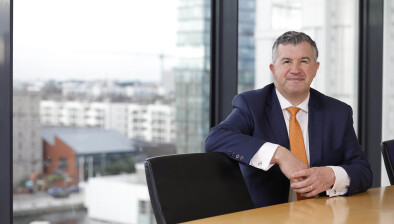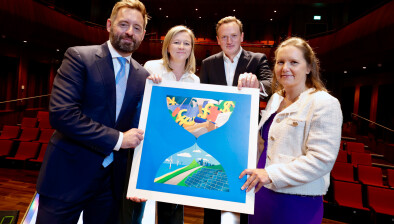MHC: Energy sector professionals believe government targets are unrealistic

Eoin Cassidy
More that two-thirds of Ireland’s energy sector believes that the government’s delivery target for offshore wind is either extremely challenging or completely unrealistic, according to a survey by business law firm Mason Hayes & Curran.
Just seven per cent of industry professionals believe that the target, which has increased from 5GW to 7GW, is “realistic and achievable”, according to the survey of almost 400 industry professionals at the law firm’s annual energy conference, Energy Security in a Net Zero World.
The vast majority of respondents (79 per cent) believe that Ireland can implement policy changes to avoid blackouts in the next 18 months.
Climate change, energy security and ESG were all on the agenda at the hybrid event, which took place online and at The Shelbourne Hotel, Dublin, today.
More than half (54 per cent) think the 75 per cent emissions reduction target set for the electricity sector by 2030 is unachievable, with 52 per cent of respondents also stating that the government’s target of reducing agriculture emissions by 25% per cent by 2030 is “too modest”.
Planning risk (39 per cent) and grid infrastructure/management (31 per cent) are seen as the greatest challenges to offshore wind delivery in Ireland. Policy uncertainty is seen as the biggest risk (67 per cent) for investors considering investing funds into the renewable energy asset class, while attractive return potential from the asset class is seen as the biggest incentive (42 per cent).
Most (58 per cent) respondents believe that it should be possible to achieve energy security while also pursuing the environmental aims of ESG policy in parallel, while 54 per cent believe that a windfall tax on energy companies will have a negative impact on future investment in renewable energy.
Ossian Smyth, minister of state with responsibility for public procurement, eGovernment and circular economy, delivered a keynote address at the conference and advised that the government’s climate action plan will be updated in the coming weeks.
He said: “We are still on target for an 80 per cent reduction in fossil fuel by 2030, and we need that more than ever. Our ambitions for climate action, our ambitions for decarbonising our economy, we can see that that’s absolutely vital now. This energy crisis is not about a crisis in renewables, it’s not about shortages in the renewable sector. It’s a fossil fuel crisis. We haven’t decarbonised fast enough.”
Eoin Cassidy, partner and head of the energy sector group at Mason Hayes & Curran, said: “Our energy lawyers are attuned to the issues that the sector is currently experiencing in the context of Ireland’s energy transition.
“Providing a forum where industry leaders could discuss how all the elements of the sector can work together to build solutions to Ireland’s energy security and transition challenges was an important focus of our energy conference.
“We not only identified the key issues and risks faced by our clients in relation to the offshore wind supply chain, financing renewable projects and ESG compliance but also explored key reforms required from government to drive transition and deliver energy security for Ireland.”










